On the morning after the European Union referendum, Britain looked like a country in crisis. The Prime Minister had resigned, Scotland’s first minister was talking about a second independence referendum and the FTSE was in free fall. In several EU capitals, there was an assumption that, when the Brexit talks began, Britain would be the new Greece: a country that could ill afford to reject any deal offered by the EU, no matter how humiliating. In the days following the vote, Mark Rutte, the Dutch prime minister, declared that Britain had just ‘collapsed — politically, economically, monetarily and constitutionally’.
Five months on, Britain is in a stronger position than Rutte and co. would have believed possible. Since the referendum, the British economy has grown faster than that of the eurozone. The government is now led by a Prime Minister who is as secure in her job as any of her EU counterparts. Theresa May can walk into the Brexit negotiations knowing that she has several aces in her hand.
James Forsyth and Isabel Hardman discuss Theresa May’s Brexit cards
She has a commanding 28-point lead over Jeremy Corbyn on the question of who would make the better Prime Minister. Her position within her own party is also strikingly strong. Tory MPs know they can’t have two unelected leaders in one parliament, and her Remainer critics lack support both in the parliamentary party and among members. She can be confident that when she goes to the country, her governing majority in Parliament will increase. How many other European leaders can say the same?
The post-referendum recession that the Treasury forecast has failed to materialise. Instead, unemployment has dropped to an 11-year low, and at just under 5 per cent, it is half that of the eurozone. The pound has lost value, especially against the dollar, which will push inflation higher. But considering that the pound was too high for too long (last year the International Monetary Fund said it was 13 per cent overvalued) its fall is not entirely a bad thing. Currencies are not national virility symbols but economic shock-absorbers. Several European countries right now desperately need a more affordable currency, but are stuck inside the euro straitjacket.
Immediately after the Brexit vote it seemed as if the result might have created new grounds for a Scottish divorce from England, as Nicola Sturgeon took to the airwaves to talk about a second independence referendum. But five months on there doesn’t appear to be any groundswell of support for this. Privately, the SNP used to say they wanted 60 per cent support for independence for several months before asking the country again. But support for independence is safely below 50 per cent, as it was before Brexit. The SNP has also blundered in its argument for a second referendum by saying that it wishes to stay in the European single market. Given that 64 per cent of Scottish exports go to the UK market and only 17 per cent to the EU, it is clear which union is more economically important. Going into the negotiations, May will not feel that her approach should be dictated by fear of what the SNP might say about it in a future independence referendum.
The election of Donald Trump means that another card has fallen into the Prime Minister’s hand. First, his ambivalence about Nato has made Britain more important to Europe’s security than it has been for 60 years. Vladimir Putin clearly senses an opportunity. His plan to move nuclear-capable missiles to Russia’s western enclave, Kaliningrad, is a sign of how he intends to probe for weakness and exploit irresolution over the coming months.
If Europe cannot rely absolutely on President Trump to defend eastern Europe from Russian aggression and subversion, then Britain and its military forces, intelligence services and nuclear deterrent become far more important. This should create a more mature and cooperative atmosphere for discussions. After all, Britain’s continuing security commitment to Europe is proof that this country is leaving the EU, not the continent itself.
The second Trump effect is the keenness of those around him to cut a quick trade deal with the UK. His team views an Anglo-American agreement as a way of showing that they are not anti-trade per se — just against deals with low-wage economies that they believe cost American jobs. No one would think that a deal with Britain would lead to workers being undercut in Ohio, Michigan and Pennsylvania — three manufacturing-heavy states that swung from the Democrats to Trump. The incoming administration’s enthusiasm for a deal with the UK, in stark contrast to Barack Obama’s ‘back of the queue’ approach, makes it less easy to claim that Brexit will leave Britain isolated and alone.
Another event that could reshape the negotiations is Italy’s constitutional reform referendum on 4 December. The vote is on a complex series of measures designed to change the balance of power between the different houses of the Italian parliament— but its significance for Brexit comes from the pledge by Prime Minister Matteo Renzi to resign if these changes are rejected (as was suggested by the last poll before a polling blackout began). A Renzi resignation would make markets look again at the state of Italy’s banks and their non-performing loans. This could push the eurozone crisis from its current chronic state to an acute one.
Renzi’s departure would also be likely to lead to fresh Italian elections. Currently, the polls — for what they are worth — indicate that the country’s next prime minister will be from the Five Star movement, which is committed to a referendum on Italy’s euro membership. This would precipitate a far bigger crisis for the single currency than anything we have seen before. After all, the plot against (and downfall of) Silvio Berlusconi in 2011 came about because he mused about the possibility of Italy quitting the currency union.
This all plays to Mrs May’s advantage because London is the de facto financial and banking capital of the eurozone. The more trouble the single currency gets into, the more dangerous it would be to erect barriers between the two. These could threaten the finances of some eurozone states by making it legally complicated for them to sell their sovereign debt on the London market. One of those intimately involved in preparing the UK’s negotiating strategy tells me that only the French appear oblivious to this. However, the UK does not want to publicly highlight so explosive an issue.
It is often said that politics will trump economics in the Brexit negotiations. But the single currency’s stability is not just an economic issue — the euro is the ultimate expression of the European political project. So the financial services sector may get a significantly better Brexit deal than expected.
None of this is to say that Brexit will be easy. The negotiations will be infuriatingly complex and it is hard to imagine the May government achieving much else until the exit talks are complete. There are also concerns in Whitehall that the government lacks the experts required for the task, given how legal and technically fraught even the preparatory work is. It is also imperative for May to persuade business that she will take radical steps to make the UK more globally competitive if no EU deal can be negotiated.
Also, the other European leaders are fairly united in their negotiating position. They are determined to show that you can’t have all the benefits of union with none of the costs. Britain’s traditional EU allies are most likely to stress this in order to damp down their own domestic Eurosceptic movements. This is where Trump has not helped the UK’s cause. His election has made EU governments more fearful of a populist revolt. Indeed, if Marine Le Pen is thrashed in the second round of the French presidential elections it will, one suspects, make it easier for Theresa May to negotiate a good deal.
Several European leaders are still feeling a bit raw about Brexit. Wolfgang Schäuble, the German finance minister, has told colleagues that he cried when he heard that Britain had voted to leave. If emotion were to triumph over cool economic logic — and no agreement is reached — it would hurt both sides. The intensity of feeling shows why British ministers must be extremely careful not to sound as if they are running down the whole EU project. Diplomacy and the national interest require that Britain conveys the message that it wishes the EU every success in future, regardless of how much ministers might privately think that the break-up of the euro would be a good thing.
Senior British government figures expect two trade agreements between the UK and the EU. This marks an attempt to avoid a Wallonia-style problem where the whole agreement is held up by the objections of one parliament in Europe.
The first deal would cover trade in goods — and because this is an EU competence it could be done at EU level. The second would cover services, and as that would be a ‘mixed agreement’, covering both EU and national competences, it would go out for approval by national and regional parliaments. Obviously, this deal would be particularly vulnerable to political grandstanding. But given that services tend not to arouse the same level of protectionist anxiety as agriculture or manufacturing, the approach could work. After all, Wallonia doesn’t have a banking sector to protect.
Britain has not yet served formal notice that it intends to quit the EU — so no one can say with any certainty how Brexit will go. Thanks largely to sheer luck, however, Theresa May has a better hand than she could have dared hope for when she took office. Now she must play her cards right to make Brexit a success.
Got something to add? Join the discussion and comment below.
Get 10 issues for just $10
Subscribe to The Spectator Australia today for the next 10 magazine issues, plus full online access, for just $10.
You might disagree with half of it, but you’ll enjoy reading all of it. Try your first month for free, then just $2 a week for the remainder of your first year.


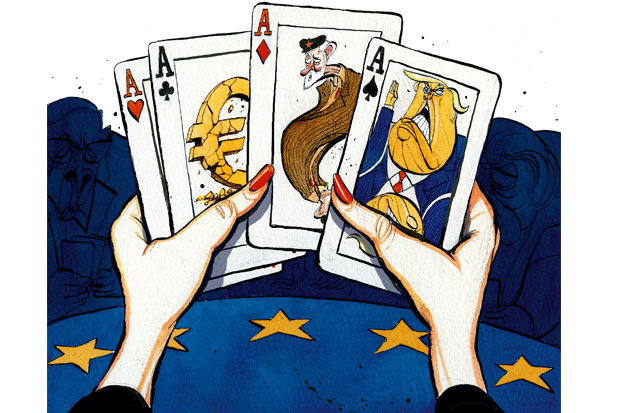
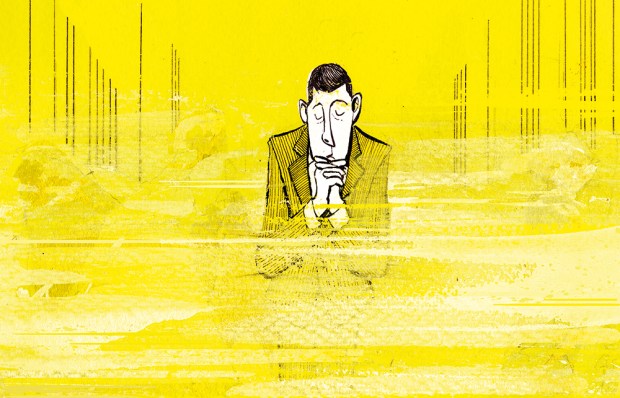

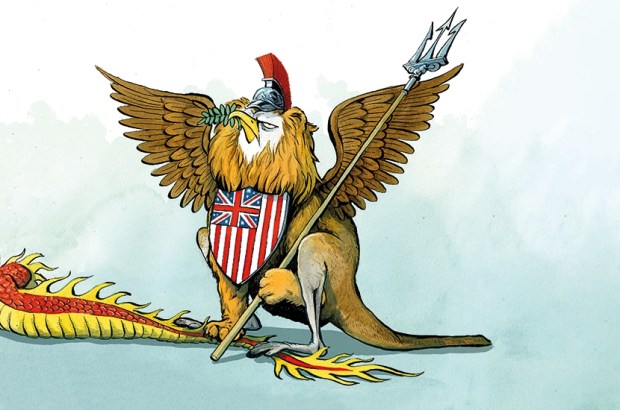
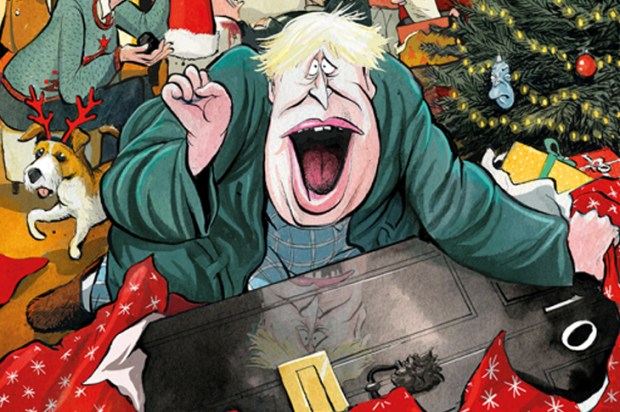
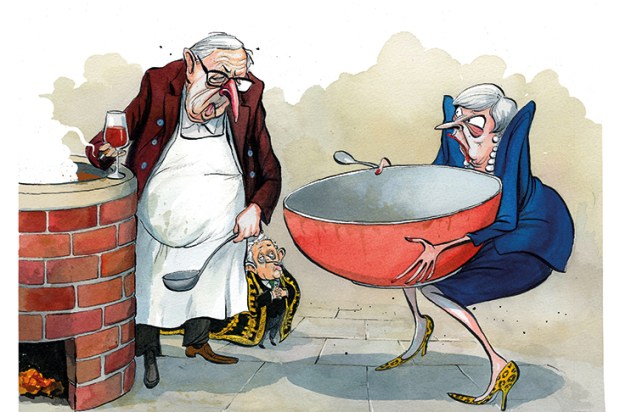
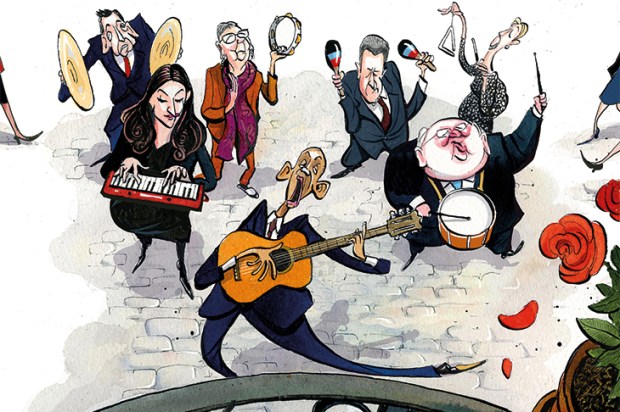






Comments
Don't miss out
Join the conversation with other Spectator Australia readers. Subscribe to leave a comment.
SUBSCRIBEAlready a subscriber? Log in